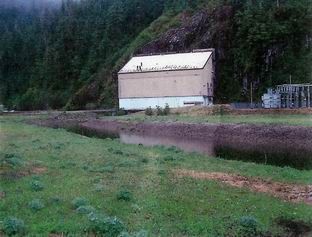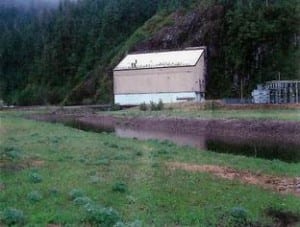Petersburg’s assembly is asking the Southeast Alaska Power Agency to follow the state’s open records and meetings laws, like the municipalities that created the organization. Petersburg assemblyman John Hoag brought the issue up during a regular assembly meeting this week:
“I am quite concerned about what I have read and been told about SEAPA not recognizing that it is a public agency and should be conforming to both the public meetings and public records law. I mean this is an agency that has been created by other public agencies for the sole purpose and very critical purpose of looking at coordination of power issues throughout Southeast.”
SEAPA’s bylaws require adherence to the state’s open meetings act and SEAPA meetings are advertised and open to the public. However, the bylaws do not address public records. In response to media requests for documents last month, SEAPA staff members asserted that under state statute’s, SEAPA is not actually a public agency, so it does not have to make its records public. The agency did release its bylaws and a variety of other documents after KFSK public radio and The Wrangell Sentinel expressed concern to the SEAPA board.
During Monday’s assembly meeting in Petersburg, Hoag said public disclosure was a state requirement and should not be a matter of discretion on SEAPA’s part. For Hoag, who is an attorney, the issue was particularly important as the region looks to develop new power projects.
“Expansion of Southeast Alaska’s hydro capabilities is probably the most crucial long-term economic development item we have with the ferries coming in perhaps a close second. And for an agency that is an intergovernmental agency in essence to say that they are not subject to public records and public meetings law, to me, flies in the face of Alaska law and common sense,” Hoag said.
Mayor Mark Jensen agreed and noted that Petersburg was not the only SEAPA community with these concerns. SEAPA owns the two, main hydro-electric plants and lines that power Petersburg, Wrangell, and Ketchikan.
The board is made up of representatives from each town. Some board members have also spoken in support of transparency and have called for more discussion on the issue. SEAPA is considered a Joint Action Agency under state law. Such agencies have the powers of a public utility. They can finance, build and operate power plants and transmission lines but, according to statute, they have a separate and independent legal existence from the public utilities they serve.
At Hoag’s request, the assembly unanimously agreed to have the Mayor send a letter to SEAPA, asking that the agency abide by the state’s open meetings and open records laws. SEAPA CEO Trey Acteson was not available for an interview for this story on Tuesday.











